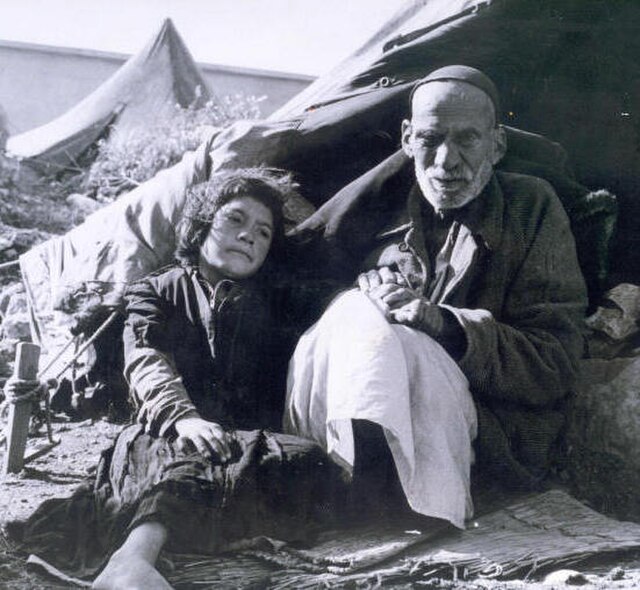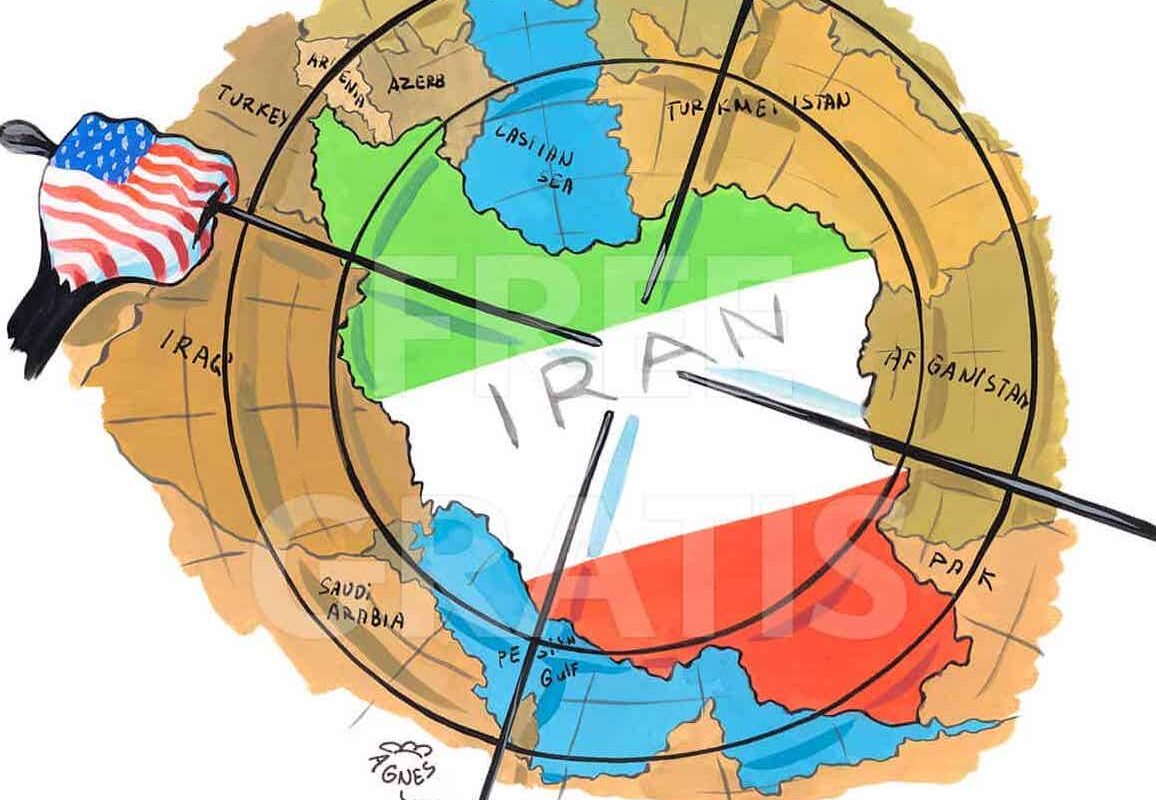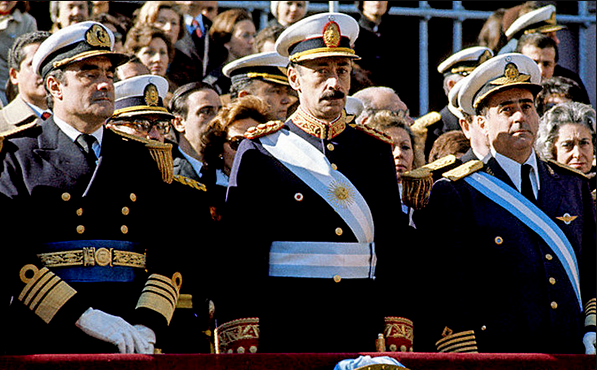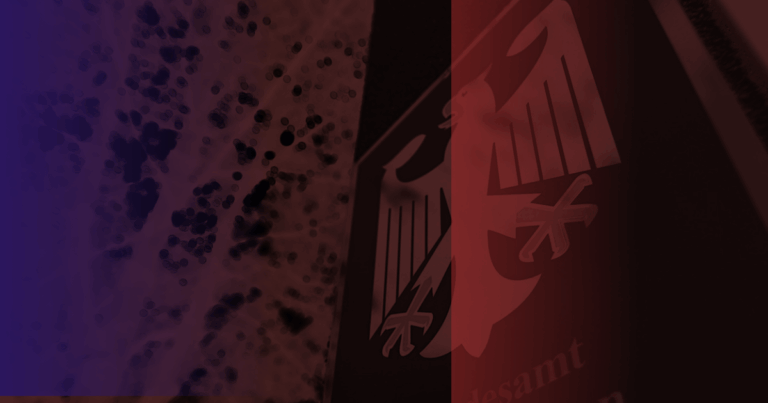Quoting George Orwell, as Jeffrey Herf did, is Orwellian in itself and encapsulates how Zionism endures — by distorting history through the inversion of meanings. Acts of explicit colonialism are portrayed as anti-colonial, fascism is painted as emancipatory, and racism is labeled as secular. Ideologically-driven Zionist academics seek to impose an inconclusive and misleading version of the history of 1948. To uphold this fragile Zionist narrative, selective omission, exclusion, suppression, or concealment of information is employed. This is evident in the Israeli government’s resealing of the Nakba archives and similar framing tactics in Herf’s selective text, which we will debunk throughout this section.
For decades, Israel controlled the narrative of its founding. It took generations under occupation and displacement for education to empower Palestinians to voice their experiences. Media advancements facilitated the circulation of images and stories during the First Intifada in 1987 which contradicted the Zionist narrative and received unprecedented international coverage. The brutality of occupation and the true face of Israel were broadcast for the world to witness. Wolfe (p.387 – 409) argues that Israel operates as a settler-colonial state, following the example of the United States and its unwavering support driven by ideology and geopolitical interests, implemented by the United Kingdom, and ratified by European states’ self-interest under the guise of guilt. Both the founding generation of Zionists and contemporary Zionists are far from being secular; instead, they adhere to a supremacist ideology. We need to recall the violent, colonial, and fascist nature of Zionism and correct Herf’s insinuation of the opposite narrative.
What is the real truth of Israel’s founding?
In essence, the state of Israel was not an overnight colonial project; it began before the emergence of the U.S. as the new superpower after the Second World War. The Zionist movement relied heavily on the United Kingdom – the prevailing imperialist superpower at the time. Foreign actors’ commitment to Zionism began with the British War Cabinet’s considerations after declaring war on the Ottoman Empire in 1914, of Britain conquering Palestine to safeguard the Suez Canal and establish it as a homeland for Jewish people. The British government’s Mandate to Palestine Article 2, put into effect in 1914 and particularly during the so-called mandate years starting in 1917, explicitly declares its intention:
The Mandatory shall be responsible for placing the country under such political, administrative and economic conditions as will secure the establishment of the Jewish national home, as laid down in the preamble, and the development of self-governing institutions, and also for safeguarding the civil and religious rights of all the inhabitants of Palestine, irrespective of race and religion.
Unilateral Zionist colonization struggled to make progress in the three decades leading up to the First World War, but the alliance between British imperialism and Zionist colonialism was supported by former British Prime Minister David Lloyd George (1916-1922), and as Sayegh writes (p.212), the appointment of Zionist Jew Herbert Samuel as a British Cabinet minister and the first High Commissioner in Palestine in 1920. George, Samuel, and other powerful European actors facilitated the implementation of the Balfour Declaration, which promised to make Palestine the Homeland of the Jewish people. The World Zionist Organisation was recognized as a representative ‘Jewish Agency’ in Palestine, and was composed of institutions established with the purpose of planning, financing, and supervising the systematic colonization process: The ‘Jewish Colonial Trust’ (1898), the ‘Colonization Commission’ (1898), the ‘Jewish National Fund’ (1901), and the ‘Palestine Office’ (1908) (Sayegh, p.210).
Over the next thirty years, the World Zionist Organisation played a critical role in facilitating the mass immigration of Zionists and the establishment of a Zionist settler community and paving the way for the dispossession and expulsion of the Arab people. Despite Arab protests, these external Western forces were implementing their will and imposed European Jewish immigration on the local Arab population rather than respecting the self-determination of the Indigenous population (Sayegh, p.212).
Lacking a historical presence in the Middle East until 1948, the United States of America had minimal involvement with the Zionist movement, unlike the British. To that point, the Zionist movement only spoke of a Homeland for the Jewish people in Palestine as promised by the British, and not a Jewish nation-state. Whereas the decision-makers in the US-American and British foreign policy establishment might have been almost universally opposed to the creation of the State of Israel for various reasons, the material reality on the ground in Palestine was very different. The phase of establishing the homeland for the Jewish people in Palestine was completed, and the second stage was ripe for the nation-state, inspired by US-American exclusive ideals of self-determination.
Herf writes that from the US administration, only President Harry Truman was for the partition plan and establishment of the state of Israel. In Herf’s argumentation, this positions Israel outside of the project of Western colonialism. Truman’s actions in fact highlight his entanglement with Western colonialism. His support for the UN partition plan and the recognition of the Jewish state stems from his ideological background shaped by his Baptist upbringing and extensive knowledge of the Holy Scriptures. His decisions were not primarily driven by strategic imperatives, as advised by American foreign policymakers, but rather by genuine compassion for Jewish suffering, religious beliefs, and the political advantage of gaining support from American Jews.
The fact that Truman refused to lift the neutral UN arms embargo from November 1947 to May 1948 does not change the fact that, as Leviero states, he agreed to give the Zionists a 10,000,000 US dollar loan after he met personally with Chaim Weizmann, the head of the World Zionist Organization and an important figure in the colonization of Palestine. This loan was essential to their war efforts.
Already during the British mandate in Palestine, approximately 30,000 Jews served in the British army from 1939 to 1946, some in special units composed of Jews from Palestine, including the Jewish Brigade (Yad Vashem). Britain equipped, armed, and trained these units in the use of imperial weaponry, tanks, and planes. Contrarily, the British disarmed Palestinians who fought for their sovereignty; the men were arrested, placed in concentration camps, and some were assassinated or exiled. By 1939, 5,000 Palestinians had been killed and 15,000 wounded. In the 1940s, a generation that could have resisted the Zionists was missing. There were hardly any Palestinian institutions or activists left, and Palestinians lacked military and political leadership.
Contrary to Herf’s claim, the embargo affected both sides. As per a U.S. foreign relations document, the Zionists had adequate stocks of small arms and ammunition. They had the capability to support guerrilla warfare with their own weapon industry and had financial resources for arms transactions, unlike the Arabs. Moreover, the Zionists were able to accumulate light weapons and ammunition from Eastern European countries, primarily Czechoslovakia.
Why was the American bureaucracy against the Zionist project in 1947?
While Secretary of State George Marshall and his senior aide George Kennan opposed it, the American public and Congress supported it. As Amitzur Ilan writes in ‘The Origin And Development Of American Intervention In British Palestine Policy 1938-1947’ (p.4), public support was already reflected in Congress in 1922 when it adopted a resolution approving the Balfour Declaration. In 1944, both national parties called for the restoration of the Jewish Commonwealth, and in 1945, a similar resolution was adopted by Congress, making it of “notional” importance for both parties (Ilan, p.175).
The prevailing sentiment among many British and US American leadership and policymakers, including Truman, viewed the “real Palestine” through the religious lens of the land of (European) Jews and Jesus rather than acknowledging the current Arab population. The Jewish renaissance in the Holy Land also appealed to the Puritan evangelicalism of Britain’s leadership.
Truman was torn between considerations of national interests, particularly regarding oil, the fear of communist expansion in the Middle East, and the desire to uphold moral ideals, especially in the aftermath of the Holocaust. The Soviet bloc’s support for the Zionists reinforced British and American suspicions that a Jewish state would benefit the interests of Soviet expansion in the Middle East. Yet, the USSR was primarily interested in getting the British out of the Middle East. For this reason, the British were reluctant, yet, as mentioned earlier, the facts on the ground differed greatly.
What did the United States want instead? On March 18, 1948, President Truman met with Weizmann. Truman expressed his desire for a just resolution in Palestine without violence. He indicated that if a Jewish state is declared and the United Nations faces difficulties in establishing a temporary trusteeship over Palestine, the United States would recognize the newly declared state immediately.
Herf highlights that the support for the Zionists was not solely from the Soviet bloc but also from liberals and leftists in London, Paris, New York, and Washington. However, those same leftists and liberals in the imperial core did not recognize an issue with their nations’ colonization of foreign lands and were not in a position to serve as a moral compass. The French colonization of Algeria persisted into the 1970s. Colonizers perceived the colonized natives through a racist lens, depicting them as lazy, lacking knowledge, and racially incapacitated. On the other hand, Atran writes (p.721) that Western countries saw “Jewish civilization” as especially qualified to “bring culture to the desert of Palestine.” They thought Jews would bring back civilization that would function as a very effective guard of Western interests in the region (Atran, p.721).
Frustrated by The State Department officials’ contrary statements to his decision on the partition plan in the UN, writings from the Truman library show that President Truman wrote to his sister, Mary Jane Truman, that the State Department’s “striped pants conspirators” had “completely balled up the Palestine situation.” But, he writes, “it may work out anyway in spite of them.” Truman asserted that the United States did not coerce any nation into supporting partition. This claim, however, appears to hinge on defining coercion solely as direct threats or formal White House communications. In reality, two U.S. Supreme Court justices, Frank Murphy and Felix Frankfurter, reached out to the Philippine ambassador in Washington and sent telegrams to President Carlos Rojas cautioning that a negative vote would lead to the alienation of millions of Americans. American officials employed comparable methods in approaching several countries with a mixed stance. On March 22, 1948, President Truman wrote to his brother Vivian Truman regarding Palestine: “I think the proper thing to do, and the thing I have been doing is to do what I think is right and let them all go to hell.”
Whether it be the Western Left or Liberals, the USSR, the UK, or the US, historical decision-making was predominantly controlled by powerful foreign heads of state, diplomats, politicians, and military colonels of imperial powers. These individuals and powerful countries had no inherent connection to this part of the world or moral authority to decide the fate of the Indigenous population and their land, which makes Israel a colonial project.
Herf mentions Jamal Husayni, the representative of the Arab High Committee at the United Nations, rejecting a Jewish state in Palestine because it would undermine the “racial homogeneity” of the Arab world, attempting to paint Palestinians as racists with this example. Palestinian Arabs perceived Jewish immigrants as religious pilgrims or refugees and welcomed them hospitably. Even Herzl acknowledged the “friendly attitude of the population” (Sayegh, p.221) towards the initial Zionist colonists. Arab friendliness, however, turned into suspicion and resentment as the second wave of Zionist colonization began in 1907/1908. The deliberate displacement of Arab farmers and laborers from the new Zionist colonies, coupled with the systematic boycott of Arab produce, sparked anger among the Arab Palestinian population (Sayegh, p.221). Herf does not mention that the Zionist founding generation did not see themselves as part of the region, conducting themselves in a manner that aligned with and affirmed this perspective:
The State of Israel is a part of the Middle East only in geography, which is, in the main, a static element. From the decisive aspects of dynamism, creation and growth, Israel is part of the world Jewry. From that Jewry it will draw all its strength and the means for the forging of the nation in Israel and the development of the Land; throughout the might of world Jewry it will be built and built again (Sayegh, p.213).
From Herzl to Weizmann, from Ben Gurion to Goldmann, the leaders of Zionism have all believed and propagated that the main enemy of Zionism is not Gentile ‘antisemitism’ but Jewish ‘assimilation’, as many European Jews believed would be the solution for their suffering (Sayegh, p.214). According to the Zionist doctrine, ‘assimilation’ is viewed as the loss of ‘Jewish identity’ and is the precursor to the end of the Jewish nation. Self-segregation, as per Zionism, serves as the response to the appeal for ‘Jewish assimilation’. By employing this logic that forcefully rejects the assimilation of Jews into non-Jewish societies, the fundamental Zionist principle of racial self-segregation also advocates for racial purity and exclusivity in the designated land where Jewish self-segregation is intended, inherently opposes the co-existence of Jews and non-Jews. The Zionist ideal of racial self-segregation necessitates the relocation of all Jews from their ‘exile’ lands and the expulsion of all non-Jews from Palestine. This full self-segregation is put forward as a requirement for the manifestation of ‘Jewish superiority,’ in line with Zionist teachings. The concept of the ‘Chosen People’ realizing its ‘special destiny’ is envisioned only when unified and isolated (Sayegh, p.215). Principles like self-segregation, exclusivity, and supremacy are what constitute the fundament of Zionism, making it a racist ideology.
To achieve this racial exclusivity, and right at its inception, the Zionist settler-state resorted to enduring, systematic, and relentless violence as a deliberate method to intimidate and displace the Arabs of Palestine. Massacres such as those at Dair Yaseen, Ain ez-Zaitoun, and Salah ed-Deen in April 1948 were strategic actions within a formal program aimed at terrorizing and forcibly removing the Arab population (Sayegh, p.215). This was the beginning of almost 8 decades of employing different forms of violence, subjugation, and forced expulsion, making Zionism a fascist movement.
While the Grand Mufti of Jerusalem, Haj Amin al-Husayni, did meet Hitler in late 1941, his role with the Nazis is inflated. As Gruner writes, by the time they met, Hitler had already overseen the murder of nearly one million Jews in the occupied Soviet territories. Dieter Wisliceny, an SS official involved in implementing the Final Solution, claimed during the Nuremberg trial that al-Husayni had suggested killing Jews to Hitler and other Nazi leaders. While some doubt Wisliceny’s credibility, believing he aimed to shift blame away from the Nazis onto Palestinians, as is done to this day by contemporary German political leadership, it is evident that Hitler and his associates did not require al-Husayni’s advice or inspiration. The decision to construct the first extermination camp in occupied Poland had been made before al-Husseini even met Hitler.
The founding of the state of Israel was indeed not a miracle but the outcome of meticulous executive planning, diplomatic influential power, substantial financing, and the results of violent paramilitary terrorism and British Army occupation. It was facilitated by the support of imperial colonial powers and a public who subscribed to Christian ideas of the end of days, and a Jewish renaissance in the Holy Land. Out of geopolitical interests, the story of Jesus was reshaped for a mythology creation of a secular Judeo-Christian nationalism; playing a crucial role in the formation of Israel. The myth of Israel as the only so-called democracy in the Middle East is directly borrowed from the United States’ strategy in the 1950s. Both present themselves not as traditional settler colonists but as revolutionary pioneers advocating for self-determination, freedom, and democracy.
Additional Reading
- Scott Atran, ‘The Surrogate Colonization of Palestine, 1917-1939, American Ethnologist 16, no. 4 (1989)
- British government Mandate for Palestine and Memorandum by the British Government Relating to its Application to Transjordan.
- CIA Foreign Relations of the United States, 1948, The Near East, South Asia, and Africa, Volume V, Part 2 – Office of the Historian
- Wolf Gruner, Did Haj Amin Al-Husseini Influence Hitler?, USC Shoah Foundation
- Jeffrey Herf Israel Is Antiracist, Anti-Colonialist, Anti-Fascist (and Was from the Start). SAPIR Journal
- Amitzur Ilan, ‘The Origin And Development Of American Intervention In British Palestine Policy 1938-1947’ (University of Oxford, 1974)
- Anthony Leviero, Weizmann Visits Truman; Loan and Arms Indicated; WEIZMANN HINTS AT ARMS AID, LOAN, The New York Times, 26 May 1948, sec.
- Palquest Great Arab Revolt, 1936-1939 A Popular Uprising Facing a Ruthless Repression
- Fayez Sayegh, Zionist Colonialism in Palestine (1965), Settler Colonial Studies 2, no. 1 (1 January 2012)
- Truman Library The United States and the Recognition of Israel: A Chronology
- Patrick Wolfe, Settler Colonialism and the Elimination of the Native, Journal of Genocide Research 8, no. 4 (December 2006).
- Yad Vashem Jewish Soldiers in the Allied Armies




